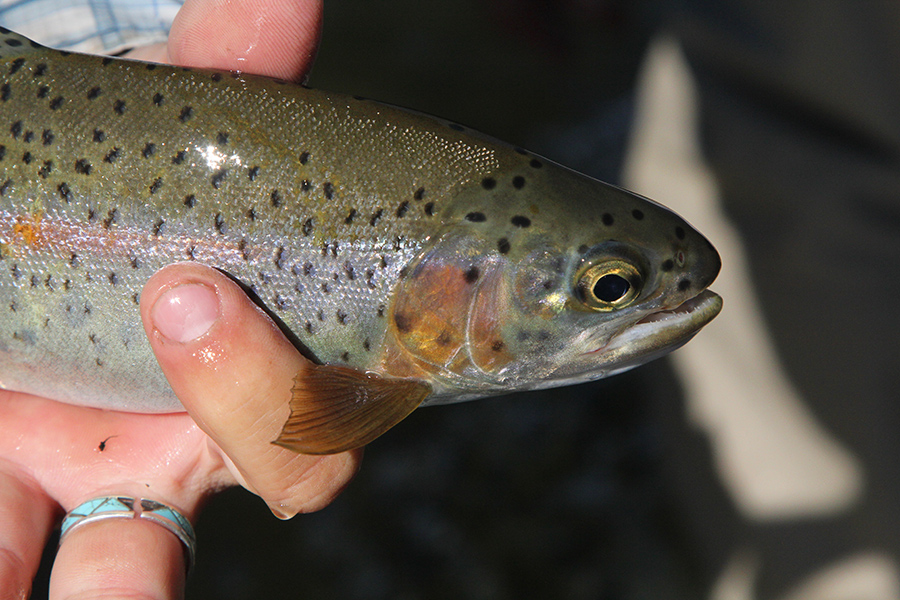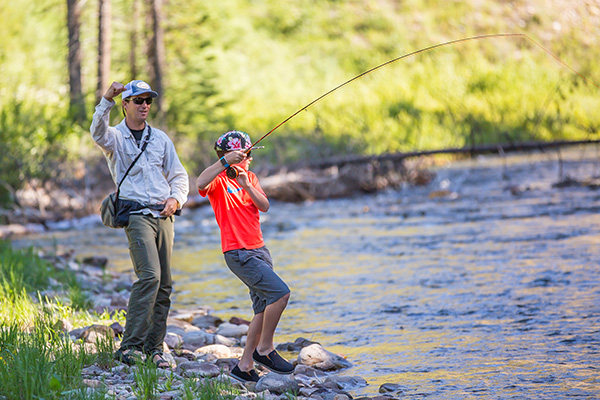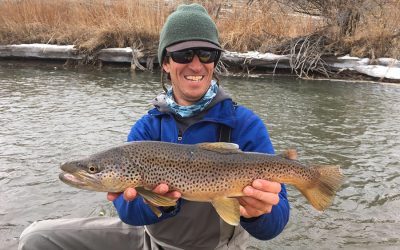Hoot Owl Restrictions in Southwest Montana Effective July 19th
According to the Montana Fish, Wildlife, and Parks (FWP) website, “High water temperatures and low stream flows prompted Montana FWP to implement hoot owl restrictions on several rivers in Southwest Montana on July 19th until conditions improve.”
A hoot owl restriction is a fishing closure when water temperatures are warmest, between 2 PM and midnight. Montana FWP enacts hoot owl restrictions when streams drop below critical levels for fish or when maximum daily water temperatures exceed 73 degrees F for three consecutive days.
Hot summer days can be physically stressful, even fatal, for cold-water fish, like trout and whitefish, and not just because they are evading angler’s flies and hooks.
Low water diminishes habitat available to fish, while warm water affects fish physiology and behavior.
Fish are sensitive to water temperature. Unlike land animals, they cannot escape their environment. Fish are also cold-blooded, which means their body temperature responds to the temperature of the water.

A cold, wet trout is a happy trout.
For most species of fish, an increase of 10 degrees C (18 degrees F) will approximately double their metabolic rate. Elevated metabolism increases oxygen and energy demands for fish. To further complicate the situation, warm water holds less oxygen.
During the dog days of summer, fish need more oxygen, but must work harder to breathe. Some species, like bass, are comfortable in warm water, but water in the high 70’s degrees F can be fatal to cold-water species, like trout and whitefish.
If you were a trout, swimming in warm water might feel a little bit like a hard workout. Now imagine, swallowing what you thought was a spruce month, and ending up in the fight for your life. Then, you would really be out of breath!
This is not to say that anglers shouldn’t fish during the peak of dry fly season; however, making small changes to catch and release fishing habits and fish handling practices could give fish a better chance of surviving after being released.
According to local angler and Gallatin River Task Force board member, Mike Richter, playing fish quickly and keeping them wet can save lives. Mike suggests: 1) smashing the barb (on your hook), 2) wetting your hands before touching a fish, 3) keeping fish in the water or close to the water as long as possible, 4) taking photos in five seconds or less, and 5) stopping fishing after 2 PM.
Fighting fish to exhaustion, especially on hot days, can be fatal. But mindful angling, during the summer months, can give fish room to breathe.
For more information on drought-related closures, visit the FWP website.
Photos by Benjamin Mackall, Mike Richter, and Dave Pecunies


